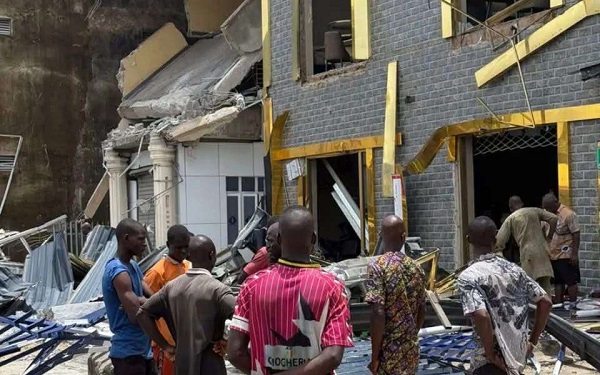The Lagos State government has dismissed the claims of Labour Party’s 2023 presidential candidate, Peter Obi, over the demolition of plazas at the Trade Fair Complex in Ojo Local Government Area, stating that the affected structures lacked the necessary approvals from state authorities. The government’s response followed Obi’s Tuesday visit to the Auto Spare Parts and Machinery Dealers Association (ASPAMDA) market, where he condemned the exercise and commended traders for their restraint despite the losses incurred. Obi, who was accompanied by lawmakers including Senators Enyinnaya Abaribe and Victor Umeh, alleged that the demolished plazas had valid approvals and faulted what he described as a case of double standards. He also revealed that legislators had pledged to thoroughly investigate the incident to uncover the circumstances and prevent similar cases in the future.
However, in a statement issued on Wednesday, the Lagos State Commissioner for Information and Strategy, Gbenga Omotoso, countered Obi’s claims, accusing him of misleading Nigerians. According to Omotoso, the property owners failed to secure the required building permits from the state government and ignored several opportunities to regularise their documents during an amnesty declared last year. He revealed that officials of the Ministry of Physical Planning, the Lagos State Building Control Agency, the Lagos State Urban Renewal Agency, and the Lagos State Physical Planning Permit Authority were responsible for carrying out the demolitions after years of failed engagements. Omotoso further alleged that government officials attempting to enter the complex at different times were assaulted, forcing the police to intervene. He noted that the affected traders repeatedly turned down invitations to meetings with the government, making it difficult to resolve the matter amicably.
The commissioner also dismissed the argument that the Trade Fair Management Board had authorised the constructions, insisting that the board had no legal powers to grant building approvals. He explained that its mandate was limited to the management of leases and tenancies, not physical planning permissions. Citing the Nigerian Urban and Regional Planning Act of 1992, as well as a 2003 Supreme Court ruling, Omotoso stressed that the authority to grant planning approvals lies squarely with state governments. He added that only in exclusive federal areas, such as military formations, can state laws be overridden.
Omotoso maintained that the demolitions were executed within the confines of the law and urged citizens to separate political sentiments from legal requirements. According to him, society must decide if it will be governed by established laws or emotions stirred by political interests. He insisted that the Lagos State government would continue to enforce planning regulations to ensure the safety and orderliness of the environment, despite the controversy surrounding the Trade Fair demolitions.

